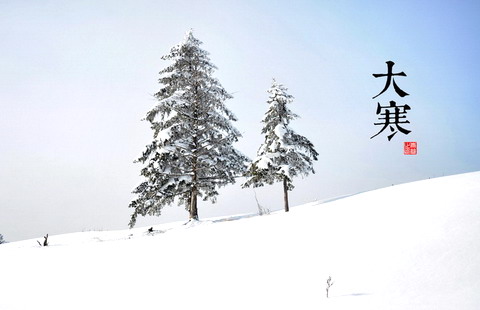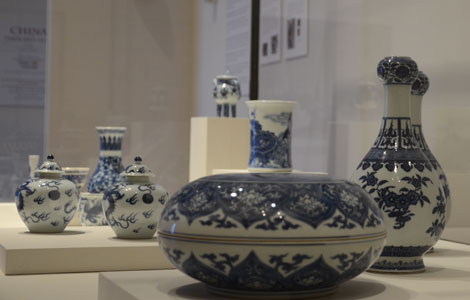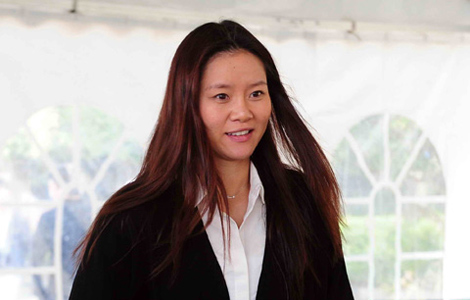Mexican chia seed 'super food' a hit among Chinese
Updated: 2015-01-19 04:52
By Zheng Xin in Beijing(China Daily Latin America)
|
||||||||
The Mexican chia seed has been avidly sought by increasing numbers of Chinese, especially among aerobic enthusiasts, bodybuilders and gym worshipers.
"I take the chia seed every day, sprinkling it on the cereal, yogurt or salads and mix it into drinks," said Angela Cai, a 27-year-old Beijing resident who is into fitness and bodybuilding. "The seeds are a concentrated source of the anti-inflammatory omega-3 fatty acids, even more mega-3 fatty acids than is found in salmon, and it's also easy to take in without being grounded up to receive the benefits."
Chia seeds, which got its name from the Mayan word for strength, were once consumed by the Maya and Aztec people, and are an excellent source of fiber and antioxidants, a good source of calcium and plant-based protein and an excellent source of the plant-derived omega 3 fatty acid.
As the "super food" pack in many nutrients with a minimum of calories, many Chinese are taking the chia seeds as part of their daily diet, just like the Aztecs.
Cai said she started taking the chia seeds, after seeing many fitness professionals at home and abroad introducing this "super food" into their diets. When combined with liquids, such as water, juice or yogurt, Chia turns into a gel because of the soluble fiber.
"I usually eat some food before and after working out in a gym, and the chia seeds, with a high fiber content and help with digestion, makes me feel fuller by soaking up fluid, so that I don't feel burdened while exercising," she said.
Just like Cai, many Chinese who are concerned with their physical condition, started giving the seeds a try as part of their healthy eating regimen, mixing them with yogurt or as an oatmeal topping, tossing it into a smoothie, or using it as a binder and healthy fat in baked goods.
Melina Jampolis, M.D., a board-certified nutrition doctor and contributing expert to CNN's Diet & Fitness Q&A, said despite the fact there is no actual definition for super food, Chia seeds still qualify as above average health-promoting nutrients.
As with any nut or seed, they are low in saturated fats and contain no cholesterol, but like all nuts and seeds they are more calorie dense, 139 calories per ounce, so it is important to watch serving sizes and consume in moderation, she said in CNN's diet and fitness column.
But as with any "super food," they work as part of an overall balanced diet that includes a variety of fresh fruits, vegetables, healthy fats and lean protein, not as a replacement for or supplement to a poor diet, she suggested.
Despite the chia seeds enjoying their moment in the spotlight for years, the little seeds might not necessarily be right for everyone, according to a patient case study from Carolinas HealthCare System.
After one 39-year-old man swallowed a tablespoon of dry chia seeds and chased it with water, he experienced difficulty swallowing.
According to the study, when added to liquid, the gel-like ball of chia seeds resulted in an esophageal obstruction that was hard to dislodge, and the study authors recommend that those with a history of esophageal restrictions be aware of the potential danger of chia seeds, especially in their dry form.
zhengxin@chinadaily.com.cn
- Chinese premier arrives in Switzerland for Davos forum, working visit
- Obama to focus on middle class in State of Union address
- Chinese naval escort fleet visits Germany
- At least 4 killed in clashes in Congo
- UN condemns escalating attacks by Boko Haram
- Israel steps up security for possible Syria airstrike

 Chinese premier arrives in Switzerland for Davos forum, working visit
Chinese premier arrives in Switzerland for Davos forum, working visit
 7 things you may not know about Major Cold
7 things you may not know about Major Cold
 After the American dream breaks
After the American dream breaks
 300 libraries for China's countryside
300 libraries for China's countryside
 New York Philharmonic to celebrate Lunar New Year
New York Philharmonic to celebrate Lunar New Year
 Long Island collectors display Chinese art then and now
Long Island collectors display Chinese art then and now
 China's Li Na expecting first baby
China's Li Na expecting first baby
 Bank, Rockets help out school
Bank, Rockets help out school
Most Viewed
Editor's Picks

|

|

|

|

|

|
Today's Top News
Chinese premier arrives in Switzerland for Davos forum, working visit
Obama to focus on middle class in State of Union address
Drive against terrorism in Xinjiang shows result
Xiaomi feeling 'phabulous' about new phablet
Economic growth edges to 24-year low of 7.4%
Opening round of Iran sanctions fight kicks off in Senate
China: Pet-food products removal not a judgment
SAT reform could send more Chinese to ACT
US Weekly

|

|







